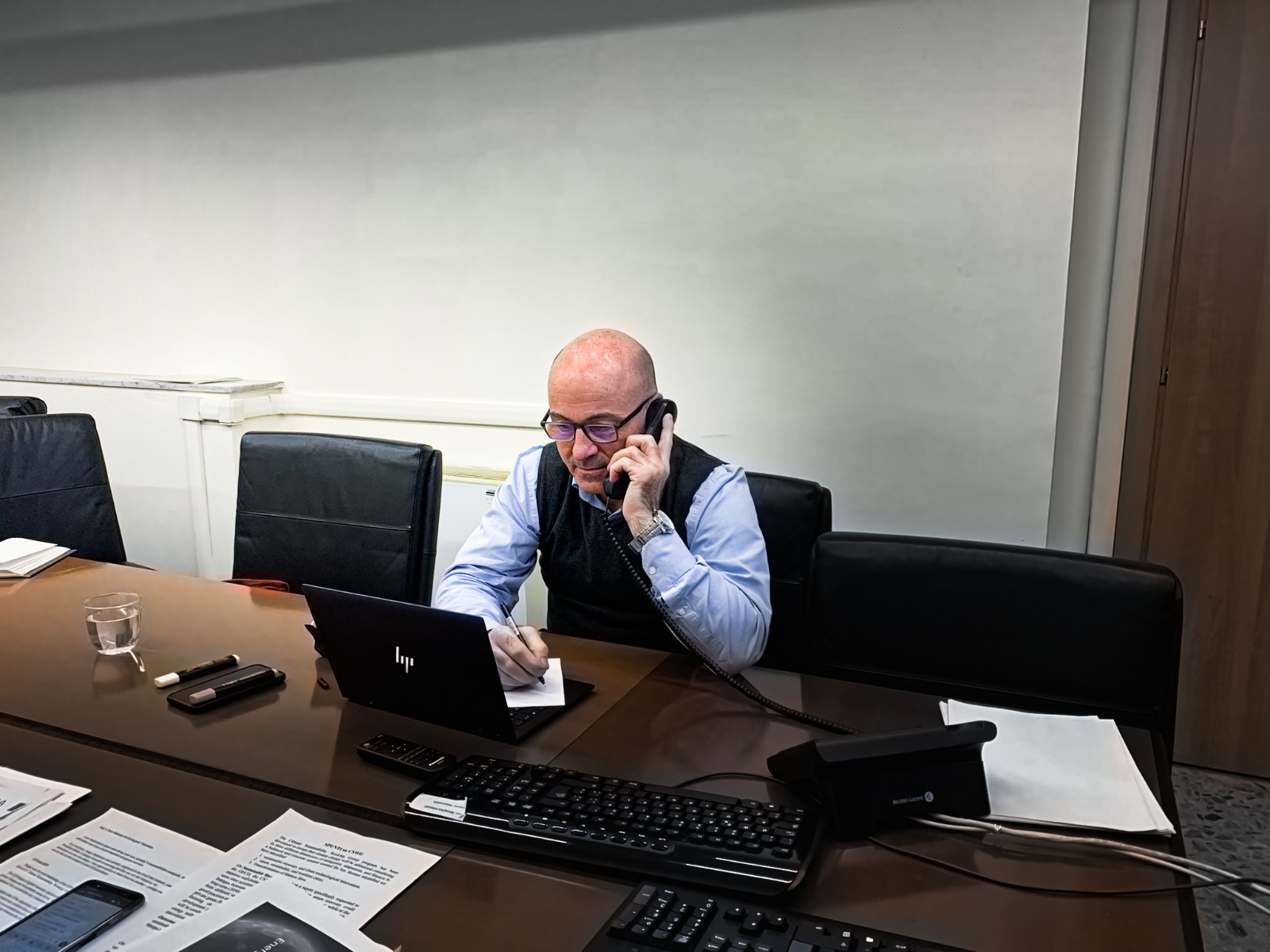Because Italy cannot give up nuclear power. Word of Minister Cingolani to Ft

What the Minister of Ecological Transition Cingolani told the Financial Times about renewables and nuclear power
Roberto Cingolani has a straightforward message for Italians who are opposed to new wind turbines or solar parks in their area.
"The alternative is to get rid of your car, no air conditioning, no cell phone, no internet," the Italian minister for energy transition told the FT in an interview. "Citizens must understand this".
Cingolani, a physicist and academic, was named by Mario Draghi, the prime minister, this year to lead a renewed push to reduce Italy's carbon emissions. It is responsible for spending about a third of Italy's € 200 billion share of the EU's € 800 billion pandemic recovery fund.
Italy is the largest beneficiary of the fund. Money gives Rome, under Draghi's leadership, a once-in-a-generation opportunity to restart its economy after two decades of stagnation, with the green transition at the heart of its recovery fund plans.
Cingolani has set a goal of producing at least 70 per cent of electricity from renewable sources by 2030, a big step up from the 55 per cent commitment that Rome has formally made with the EU. The current level is 34 percent.
In recent years, Italy's transition to renewables has come to a halt. Between 2015 and 2020, just 2 gigawatts of wind capacity and 3GW of solar went online, out of a total installed capacity of 116GW, according to analysts from Ember, a campaign group.
Renewables represent only 17% of Italy's total energy mix, leaving it dependent on expensive natural gas, 95% of which is imported. "Our energy mix is very poor," said Cingolani.
The country has been hit hard by the recent gas price hikes. The government has already allocated € 3 billion to help poorest families and small businesses pay their bills and is preparing an additional aid package for next year.
Italy needs to triple its generation capacity from wind and solar by 2030, Cingolani said. "There is no plan B".
The objective will probably be a stretch, given the well-known Italian bureaucracy and the frequent political resistance to new infrastructure projects. The minister said 3GW of renewable energy projects are currently blocked due to objections to the impact on the landscape and heritage.
Streamlining the lengthy administrative procedures to unblock growth is one of the main objectives of Italy's recovery plan.
Cingolani said that since Draghi took office at the head of a national unity government in February following the collapse of the previous administration, Italy has implemented a "very powerful simplification" of the rules and procedures for authorizing new projects. Officials estimated that the time it takes to obtain a permit for an infrastructure project could be cut from 1,200 to 270 days, "which is best in class," he said.
The central government has also adopted new "replacement powers", which allow it to bypass regional and local authorities and other bodies in the event of prolonged delays in authorizing infrastructure projects.
Cingolani said the EU recovery fund – with € 27 billion earmarked for the decarbonisation of energy production and industry – will only partially lead the country towards the EU goal of net zero carbon emissions by 2050. “I see the recovery plan as the booster of the rocket that has to go from Earth to Mars. The challenge is that the money will run out in five years, ”he said.
Even though Italy phased out nuclear power generation following a referendum in 1987, it should consider bringing it back, Cingolani said. It was "too late" to use nuclear power to help meet the 2030 renewable energy targets because the sector now lacks investment and expertise, he said. But he argued that by 2050, the demand for clean electricity will be five times what Italy hoped to generate in 2030 and therefore all technologies, including small modular reactors, must be taken into account.
"I'm not a fan of nuclear power, I'm a fan of innovation," said Cingolani, who joined the government from defense firm Leonardo, where he was chief technology officer.
Previously scientific director of the Italian Institute of Technology, he described himself as a “technical minister. I'm not very political ”.
When asked if it would be possible to bring public opinion with him on the massive expansion of renewables, he was candid: “As elsewhere, the answer is no”.
However, it was important "not to make an ideology of energy," he said. Governments need to be "very reasonable", especially when it comes to raising the price of carbon.
Rome has previously expressed doubts about EU plans to extend the emissions trading scheme to housing and transport, which would raise energy bills for consumers. He said he wants to understand the economic impact on families before giving his blessing.
"We want to do good things, but in the meantime there are social problems," said Cingolani. "Sustainability is a compromise".
(Extract from the press review of eprcomunicazione)
This is a machine translation from Italian language of a post published on Start Magazine at the URL https://www.startmag.it/energia/roberto-cingolani-financial-times-intervista/ on Sat, 25 Dec 2021 07:05:31 +0000.
